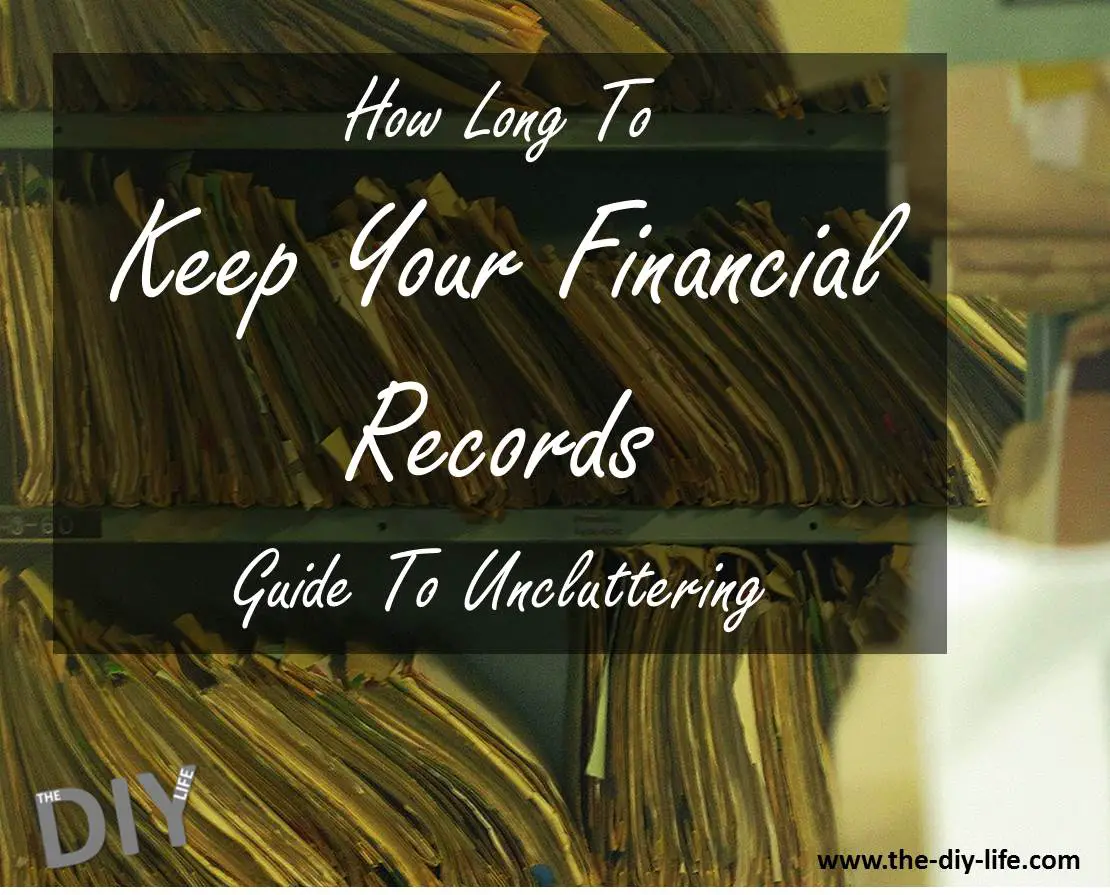We all know that we should keep our financial records in order but how long should we keep them for? Files of financial records accumulate quickly when there are two people working in the house, children on medical assistance and monthly bills to pay.
Next time you’re having a clean out day, sort through your financial documents and throw away any redundant ones. Your homes financial records shouldn’t exceed about three standard size files or you’re probably holding onto more than you need to.
So here are the records you need to be keeping and for how long:
Payslips
Keep For 1 Year
Most people no longer get printed pay cheques, however, you’ll most likely still get a summary pay slip. You should keep these until you do your tax return each year, you can check the amount against your W-2 or equivalent and then throw them out. Remember to shred the slip if it reflects your direct deposit or checking number on it.
Household Bills
Keep For 1-2 Months
Most household bills don’t need to be kept for very long unless they form part of your tax-deductible expenses. Generally, you only need to keep each bill until the next arrives and you can verify that the outstanding balance is correct. Treat tax-deductible documents as you would any tax documents, 3 years.
Medical Bills
Keep For 1-5 Years
Medical bills are a bit tricky, there are some you will have had to pay and some which were covered by insurance. Make a note on the bill when and how you paid for it, check that the transaction went through on your card and if it was covered by insurance, make a note of the claim number. Keep payments you have made to medical providers for around three to five years, depending on the value and keep any which were covered by insurance for a bit longer.
Bank Records
Keep For 1 Year
For peace of mind, keep all of your deposit slips, card receipts, cancelled cheques and ATM receipts for a year. You could also do a monthly check that all of the transactions have been correctly reported on your statements and then throw them out. You may want to hang on to those related to expensive warranty claims and ones which are related to tax expenses.
Receipts
Keep For 1-2 Years (Only The Warranty Ones)
Receipts for common goods typically don’t need to be kept. The important receipts are those related to items with warranties and those related to your tax expenses. Try to staple the warranty receipts to their warranty documentation and throw them out when the warranty expires. Tax related expense receipts should be kept for 3 years.
Account Statements
Keep For 1-2 Months
Account statements, like household bills, you only really need to keep until the next one comes. Check that the billed amounts and payments made are reflected and then they can be thrown away. Bank statements could be kept for a bit longer, some people like to keep them for up to 7 years however most banks will be able to give you historic statements anyway.
Credit Card Documents
Keep For 1 Year
Keep all of your credit card receipts and statements for a year. Credit card transactions often take longer than other payment methods to be reflected on your account so keep track of your transactions and statements to make sure that all payments have gone through. Again, keep transaction records which are part of warranties until the warranty has expired.
Tax Records
Keep For 7 Years
Your tax documents, including tax returns and supporting documentation are your most important documents to keep organised. Typically, your countries tax collector, the IRS in the US can go back three years to audit your tax return but this often does not apply if there are any anomalies picked up. If this is the case then the IRS can go back 6 years to check your returns and collect any outstanding tax. This 6 year limit is removed altogether if you filed a fraudulent return or failed to file a return.
If you are a conscientious tax return filer then keeping your tax records for 7 years is more than enough but be sure to check your local regulations for any further information or guidelines.
Home Purchase, Sale or Renovation Documents
Keep For 2 Years After Sale
Buying and selling of property has become a tax intensive exercise. When selling a home, you will now have to provide information on the purchase price and any improvements made in order to calculate the tax you will need to pay on the profit you’ve made from the sale.
Are you thinking of purchasing a new home? Have a look at these 6 questions to ask yourself before applying for a home loan.
Investment Documents
Keep For 7 Years After Sale
Investment documents are those related to stocks, bonds, pension, mutual funds or other investments. For similar reasons to your home purchase and sale documents, you’ll need to provide proof of purchase price, re-investment details, dividends paid out or recapitalised etc so that the gains tax can be correctly calculated when you sell or withdraw the investment. You’ll need to keep these documents for as long as your longest tax cycle.
Are there any records we’ve missed? Do you keep records for longer? Let us know in the comments section below?
Share This Tip:
Cover Image: Paper Files by Newtown grafitti used and modified under CC BY 2.0
Tax regulations and local laws vary per region, state and country. These time frames are meant to be used as a guide only and should be verified before throwing out any of your personal documents. The DIY Life cannot be held responsible for any loss of records.



